How Albert Camus found solace in the absurdity of football
The French philosopher proclaimed that the only way to live was to revolt relentlessly against meaninglessness. So why did he love such a ridiculous game, asks MM Owen
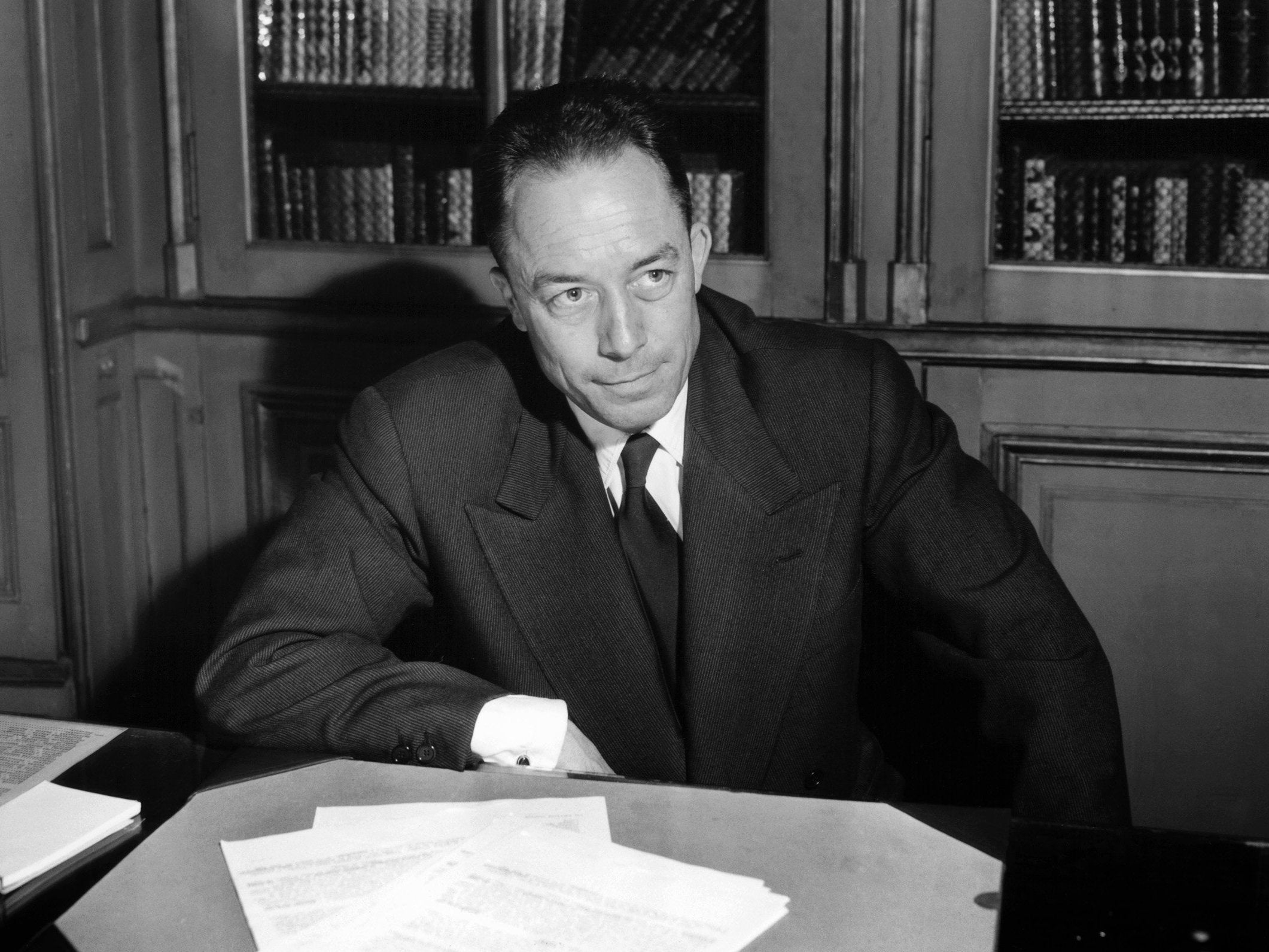
On 16 October 1957, Albert Camus was eating lunch at a restaurant in the heart of Paris’s Latin Quarter. Partway through the meal, a young man from his publisher’s office appeared. The young man dismissed the waiter, and informed Camus of what had just been announced on the radio: he was receiving the Nobel Prize in Literature.
One week later, Camus was interviewed on French television. However, the author and his interlocutor weren’t sat in a comfy studio, discussing the power of the written word. They were sat in the Parc des Princes, among a crowd of 35,000, watching Racing Club de Paris host Monaco. The black-and-white footage is preserved on YouTube. Wrong-footed, the Racing keeper reacts slowly to a deflected cross, letting the ball bobble inside his near post. We cut to the stands, where Camus – looking more than ever like a softer-faced Humphrey Bogart – is asked about the keeper’s blunder. He implores us not to be too hard on him.
As far as I’m aware, this is the only time that a fresh recipient of the Nobel Prize has been interviewed at a football match. (That this registers as incongruous, vaguely comical, is in part the topic of this essay.) Thanks almost entirely to a much-circulated misquote – “all that I know most surely about morality and obligations I owe to football” – Camus’ fondness for the game is well-known. But this fondness was more than a passing wistfulness, or a single throwaway aphorism. In 1959, less than a year before he died, Camus told another interviewer that, along with the theatre, the football pitch had been one of his two “real universities”. In football, one of the greatest French authors of the 20th century located the most potent and valuable forms of consciousness. In the game’s drama of the flesh, he felt himself witness to the fullness of life, in all its pathos, and all its saving graces.
Explaining its decision, the Nobel Committee declared that Camus’ “clear-sighted earnestness illuminates the problems of the human conscience in our times”. This bland bit of PR distracts from the intensity and anguish of Camus’ work. The central problem that he wrestled with was simple: life is absurd. Why? Because we are filled with a “longing for happiness and for reason”, but are met everywhere by “the unreasonable silence of the world”. Modernity has blasted away the old consolations of religion, revealing the universe to be a great, cold blank. Our souls yearn for transcendence, but, as Beckett writes in Waiting for Godot, we “give birth astride of a grave, the light gleams an instant, then it’s night once more”. This basic mismatch, between our psychic craving and what reality provides, is what renders life absurd. Camus compared human existence to that of Sisyphus, who in Greek mythology was condemned by Zeus to roll a boulder up a hill, only to watch it roll back down, over and over, for eternity.
And so what to do? Suicide isn’t an option. This would only compound the absurdity, and in any case Camus adored the experience of being alive; the tragedy was precisely that reality was so sumptuous, yet was forever slipping away “between my fingers, like beads of mercury”. But Camus couldn’t accept the “philosophical suicide” of religion, either. Though he was fascinated by religious devotion – and, like so many people who spend their life drowning in words, occasionally told friends he intended to retreat to a monastery – it wasn’t in him. His bouts of asceticism would always wane. Camus wanted to be in the world, to face it squarely without succumbing to either despair or delusion, both of which he regarded as forms of psychic surrender.
Our only remaining option, as Camus saw it, was a total, full-hearted acceptance of our predicament. Each of us is condemned by the cosmos; each of us has our boulder to roll. But “the struggle toward the heights is enough to fill a man’s heart”, if we let it. In Camus’ philosophy, meaning and value derive from a defiant and personal creativity. His was a sort of ecstatic nihilism. We are destined for oblivion, Camus said; we all know that, whether or not we like to talk about it. But like Sisyphus, we can live with “the certainty of a crushing fate, without the resignation that ought to accompany it”, if we make the choice to imbue our condition with passionate endeavour. In the “wild and limited universe of man”, we can all find ways to shoulder our boulder with a determined, defiant smile.
What could be more absurd than 22 people chasing a sphere of inflated leather around a rectangle of grass for 90 minutes?
And for Camus, one of those things that “negates the gods and raises rocks” was football. Long before he wrote a word about Sisyphus, Camus was falling in love with the game. Like many of the greatest players, he discovered this love in poverty. Camus was a war orphan, raised in an Algiers slum by an illiterate single mother. His grandmother constantly chastised him for playing football because it risked damaging his school boots, which had been a great expense for the family. But Camus wasn’t deterred. The First Man – the autobiographical novel he was working on at the time of his death – follows a young boy called Jacques. In childhood, football is Jacques’ “kingdom”, and through adolescence he is “obsessed” with the game. Jacques was Camus, whose early experiences of playing football took place on rough-drawn Algerian fields with “a ball made of rags”.
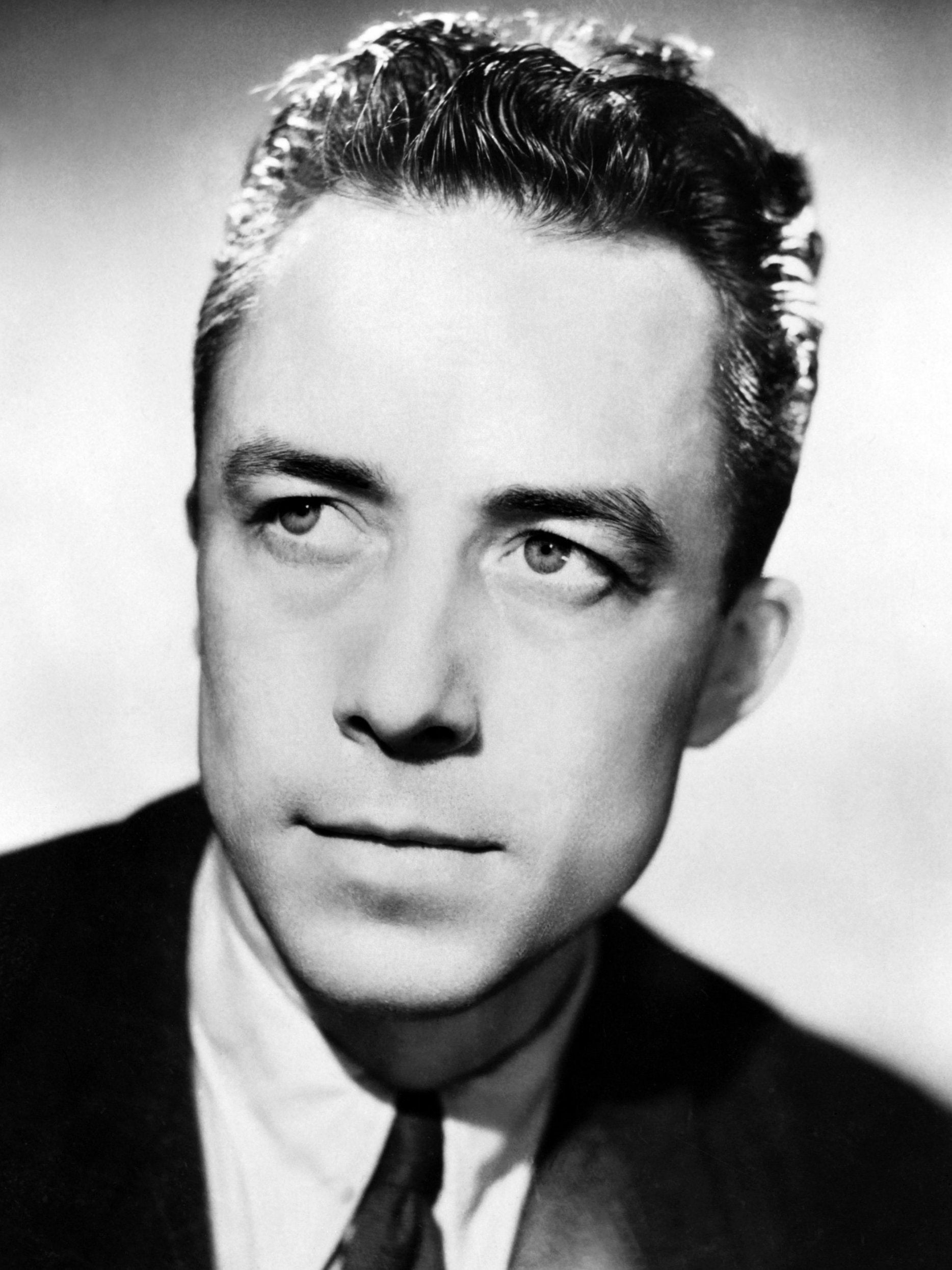
Through school, Camus was regarded as an excellent player, both (curiously enough) in goal and up front. He went on to play between the sticks for the Algiers Racing University (the RUA). In 1930, the team bulletin praised the 16-year old Camus for giving “a splendid exhibition”. Less than two months after this bulletin, though, Camus’ life changed forever. The teenager began spitting blood; it was the dreaded tuberculosis. (Some of the Camus family were convinced it was the result of him standing in the cold after a match.) Tuberculosis put an end to any hopes Camus might have had of seriously playing football – just as it later prevented him from enlisting to fight both Franco and the Nazis. His lungs only got worse, and he had to be careful with exerting himself for the rest of his days.
Camus’ love of the game never waned, though. In his twenties, while still in Algeria, he loved to watch local teams play. During his first jobs in Paris journalism, Camus would wait eagerly on Sunday nights for the scores to come in, hoping his beloved RUA had claimed victory. Working as a teacher in 1941, he coached the school team, and even played again (he was shocked at his lack of fitness). When, in June of 1944, the Allies landed on the Normandy beaches, his immediate experience of the event was the cancellation of a championship game in Paris. And in 1949, on a lecture tour of Brazil, Camus’ handlers were delighted when their guest asked to attend a local match.
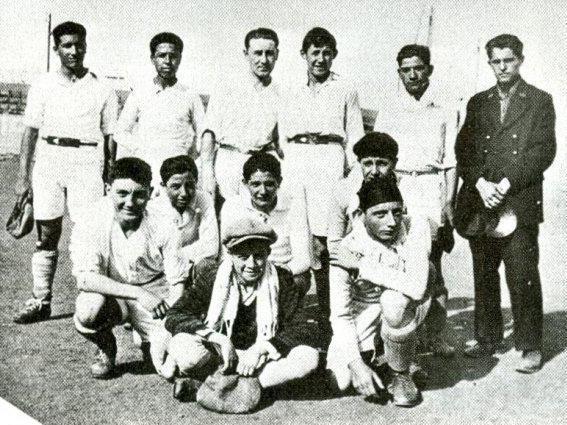
Football lit up Camus’ youth, and he continued to watch it his whole life, feeling deprived when he lived somewhere without a team. Like Gonzales in his novel The Plague (1947), he was known among friends for never passing up the chance to kick a can down the street. A love of the game drifts in the background of all his novels. This writer – this intense thinker who perceived that everything was Sisyphean, who proclaimed that the only way to live was to revolt relentlessly against meaninglessness – loved a mere game. Loved it with as much intensity and consistency as he loved anything. Why?
Consider this: what could be more absurd than 22 people chasing a sphere of inflated leather around a rectangle of grass for 90 minutes, and believing that the amount of times said sphere crosses a couple of painted lines is a matter of the most profound importance? In any sort of rational analysis, football is fundamentally ridiculous. A flurry of imaginary meaning.
But in the absurdist analysis, human striving of any sort is fundamentally ridiculous, and all meaning is at bottom imaginary. Zoom out until yours is the long view of the cosmos, and there is no essential difference between chasing a football and chasing a career, or a first home, or the eradication of racial injustice, or your soulmate. All of our huffing and puffing will exhaust itself and be forgotten, in time. To find meaning anywhere, Camus thought, required approaching life with more than cold reason. It required filtering reality through different states of being. Like many people who have known real poverty in their youth, Camus was first and foremost a pragmatist. He wanted to know what worked. And like Ivan in Fyodor Dostoyevsky’s The Brothers Karamazov – a book he liked so much he adapted it for the stage – Camus sensed that what gave life meaning were those things you love “not with your mind, not with logic, but with your insides, your guts”.
This belief that rationalism has its limits is one of the reasons Camus was always a fragile fit within the Paris intelligentsia. During the war, he was editor-in-chief of the resistance newspaper Combat. His Left Bank acquaintances shared his loathing of the Nazi occupation and approved of his impassioned and melancholy editorials. But over the next decade, Camus’ relationship with the Paris intelligentsia – most famously with their chief whip, Jean-Paul Sartre – deteriorated. As the horrors of Soviet rule began to surface, Sartre and others declared that the ideals were worth the casualties, that the gulags were a regrettable but necessary cost of creating an egalitarian society. Camus was aghast that, among his fellow writers, “concentration-camp rule is adored as an instrument of liberation”. A down payment in blood for a potential future utopia wasn’t worth the gamble. He said: “It is better to be wrong by killing no one than to be right with mass graves.” Camus’ rejection of Stalinism made him a pariah on the French left, for whom the USSR was the great political hope. During the Algerian War, pressed to support the anti-colonial mission of the Algerian guerrilla forces, Camus famously remarked that “bombs are being planted in the trams in Algiers. My mother could be on one of those trams. If that is justice, I prefer my mother.” This stance triggered his final split with the French left, to whom prioritising a single life over a grand political ideal seemed provincial, simple-minded.
Camus’ love of football can only be understood in light of these broader intellectual struggles. By the mid-Fifties, he was convinced that an airy, insulated idealism had infected much contemporary thought with a sort of anaemic dishonesty. To Camus, giving the thumbs-up to communist mass murder is exactly the sort of thing that happens when intellectuals prioritise theories over actual human beings. Camus had come to believe that the style of thinking he found in Paris – “a metropolis of wickedness, of denigration and systemic lying” – was abstracted from real life, cut off from embodied experiences of suffering and joy. After he was awarded the Nobel Prize, he was delighted when he returned to Algiers to escape the publicity, and a taxi driver recognised him not as a famous writer, but as the former RUA goalkeeper.
Camus’ 1956 novel The Fall contains his most autobiographical protagonist, Jean-Baptiste Clamence. “I have never truly been sincere and enthusiastic except when I used to play sports,” Clamence tells the reader. To this day, he goes on, acting in theatre and “Sunday football matches in a crowded stadium” are the only places “I feel innocent”. It was around this same time that Camus was asked by the RUA’s alumni magazine to reflect on his playing days, and responded by saying that “after many years in which the world has afforded me many experiences, what I most surely know in the long run about morality and the obligations of men... I learned it with RUA.” This grand remark contains within it all the disillusionment of Camus’ previous decade in Paris. With it, he was doing two things: he was rejecting what he saw as the dehumanising “abstraction” of Sartrean pontification, suggesting that the psychic tumult of a football match was a more honest ethical realm than the smoky cafes of the Left Bank. Nested in this was also a broader critique about reason at large, an expression of Camus’ lifelong scepticism towards the idea that brow-furrowed rumination constitutes the high road to wisdom. Contrary to cerebral types’ tendency to regard football (or any sport) as base, childlike, dumbly physical, Camus was honouring the game as a way to “possess wisdom about life in an immediate way, not from a great distance”.
It is fairly easy to misrepresent the sort of person you are in daily life, or on the page – it is nearly impossible to tell the same lie while in the heat of physical competition
Part of “the obligations of men” had to do with a sincere and honest camaraderie. He felt betrayed by a group of people who – during those years when they were united by the singular purpose of ousting the Nazis – had felt briefly like a team. The betrayal crushed him. Camus has probably come out on the right side of history, but he spent his actual life on the wrong side of much popular opinion. His letters reveal that he was often lonely, and felt abandoned by people he had considered friends.
On a more individual level, Camus – who regarded the world around him as mired in a moral confusion that stemmed from of a lack of self-knowledge – believed that the embodied and intense struggle of a football match revealed people to themselves. He thought that it stripped away certain artifices of character, the narcissisms foisted on us by the social, and offered a mirror. I suspect that anyone who has ever played has an idea of what he means. In my teens, football taught me things about myself that weren’t nice: I would throw my hands up when it got difficult, I would hector less skilled teammates when they made mistakes, I couldn’t be arsed to improve my weak left foot. It taught me better things, too: I wasn’t selfish in front of goal; I didn’t want to hurt people; when my friends were badly fouled I would retaliate on their behalf with an anger that shocked me. These are insights I couldn’t have uncovered in a library. To this day, they aid in my ongoing efforts to be better person, a bigger person. As Camus saw, it is fairly easy to misrepresent the sort of person you are in daily life, or on the page – it is nearly impossible to tell the same lie while in the heat of physical competition.
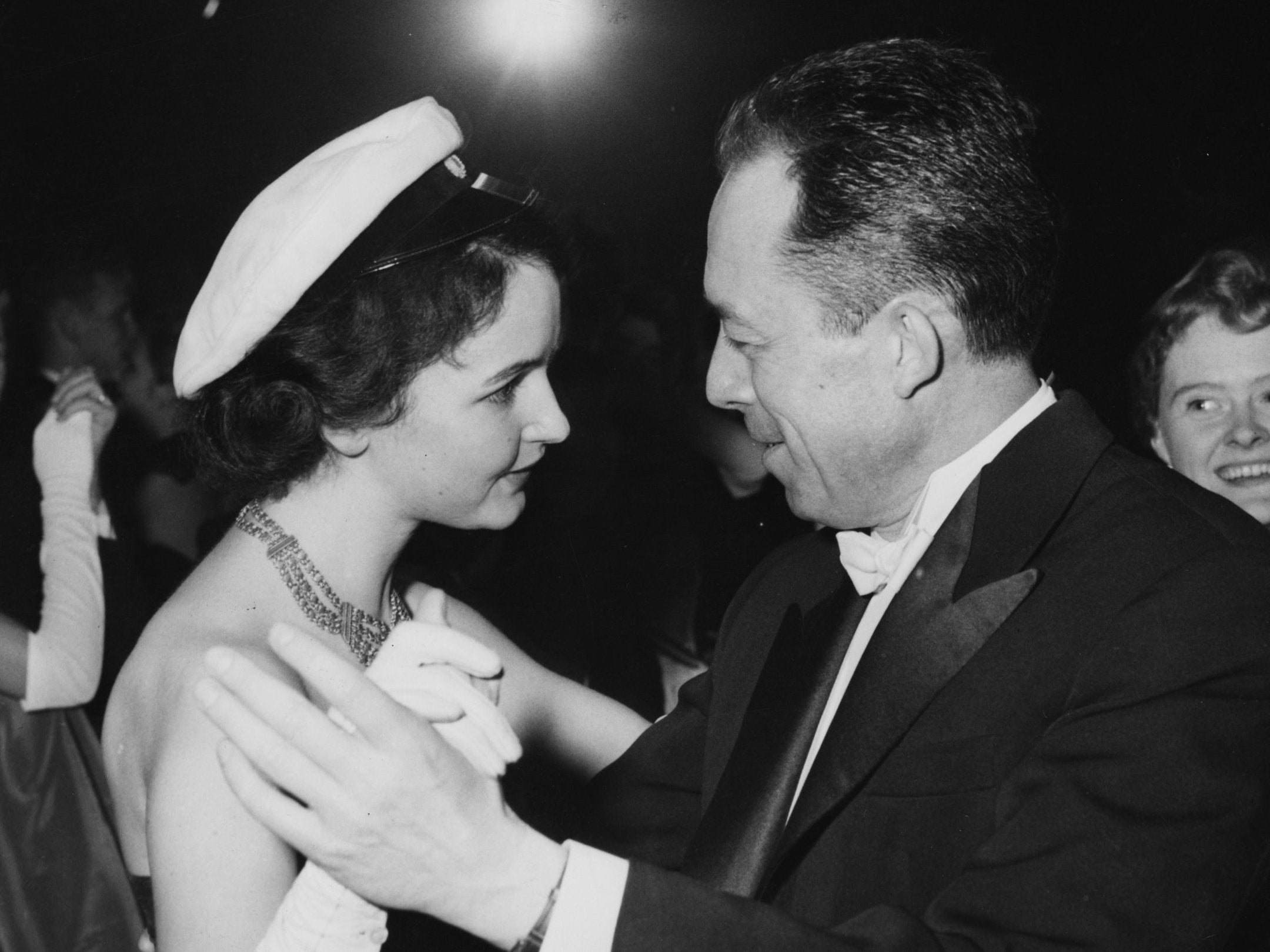
Then there are the deeper reasons that Camus located a sort of magic in football. These were more apolitical – in the way that all the profundity we discover in childhood is apolitical, and in the way that Sisyphus’s predicament runs much deeper than politics. Throughout his life, Camus dabbled in the writings of the Buddha, and kept a little wooden statuette of the ancient sage on his mantelpiece. As he grew older, Camus came to appreciate the Buddha’s grounding insight: the vast majority of human suffering begins in the gnashing, incessant movements of the mind. Camus enjoyed all sorts of sensual pleasure. He loved dancing; he enjoyed sardines washed down with Cinzano; in the week before he died he wrote love letters to five different women. But he was never a hedonist. Tracing the thread of his diaries, you see that what he sought most of all was a contented but focussed stillness, accessible in glimpses just the other side of sensory rapture. As he got older, Camus discovered this more and more in nature, in “gospels of stone, sky and water”. He sought a life “that is full of the signs of the sea and the rising song of the crickets”. But, like Jacques of The First Man, I suspect that the first place he ever alighted on such an illuminated state of being was on those Algerian fields, with the balls made of rags.
I recall with the same intensity that I recall my first kiss watching a half-volley leave my laces like a cannonball and meet the crossbar with a sound that was the core of the earth rattling. It was a bright Sussex summer’s day, a league game, I must have been about 14. In the memory I am in a trance; all of reality is distilled in the bright point of the moving ball. Its hexagons are scuffed and peeling against a perfect blue sky. I am briefly without biography. Everyone who ever played has these memories, and even players who have never stopped for a moment to consider the nature of thinking know it: football can blast away all the noise. When you’re playing well, your perception is distilled to vision and reaction, and the hot lens of awareness is made the plaything of other forces: muscles, flesh, the lungs, those older parts of us that evolved long before the cortex with its unending, corrosive commentary. The best things you ever do on the football field only become known to you seconds after you have done them. You can feel briefly like pure movement, a natural force without a name. You are more embedded in the world than ever, even as you are constantly forgetting yourself. And while you’re there, the beads of mercury are not slipping between your fingers but instead frozen, paused, in the timelessness of play. This intoxicating headspace is football’s spiritual secret. It is the thing that players become so addicted to, from the age when the ball is bigger than their skull through to the age where they need two knee braces just to risk a kickaround. Of his youth, the author Karl Ove Knausgard wrote that playing football was “the only place where I was completely spared from invasive thoughts, where it was all about being physically present”. Camus, I suspect, would have read this with a pang of recognition.
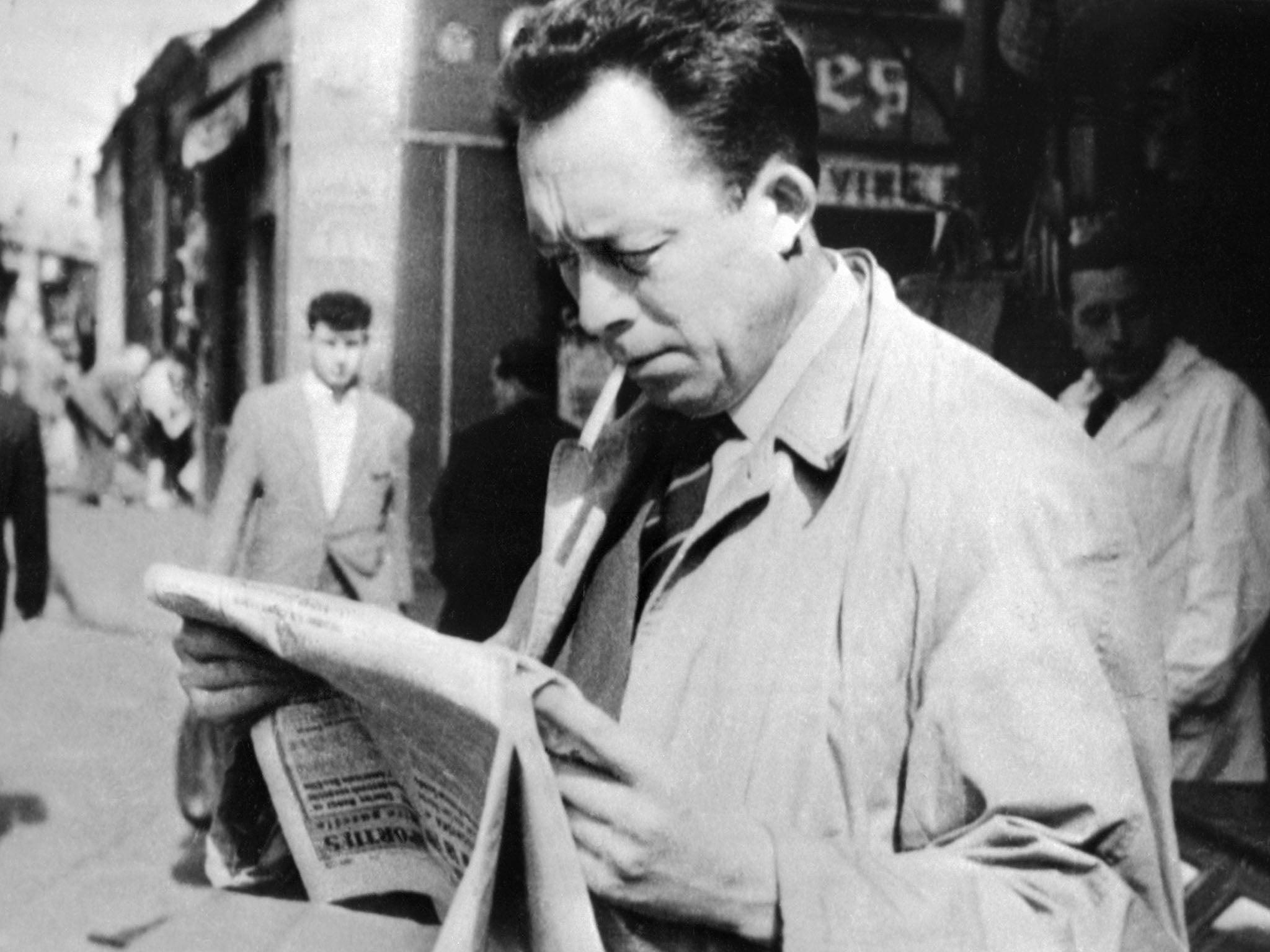
What of watching football, though? Camus only occasionally kicked a ball past the age of 16, but he loved the game for the rest of his days, and never stopped watching it. Well, for one, there was every football fan’s simple act of picking a clan and going vicariously to battle. Camus always followed RUA’s results, and went on to support Racing Club de Paris (as in his post-Nobel interview) because they played in the same blue and white hoops as his university team. And all of fandom Camus would have seen as a microcosm of the absurdity of existence. I suspect he quietly revelled in the joyous irrationality of it, because he would have seen how everything that is true of Sisyphus’s life is true of being a football fan. Playing for or supporting a team is an investment with no hope of any permanent happy ending. If we lose, we’ll have to roll the boulder back up the hill. And even if we win, even if we keep winning, we’ll eventually lose, and then we’ll have to roll the boulder back up the hill. There is no moment forthcoming when any football team, no matter how good, will solve football’s last theorem, allowing us all to pack up and go home. Such an aspiration is nonsensical precisely because it belongs in the realm of the rational. The point, as with theatre, is to keep taking to the stage even though eventually the lights will always come up and you’ll remember it was all a make-believe. Every time England crash out of a major international tournament, through a glum beery haze, I receive a text from my father: “Next time.” It isn’t a question of whether either of us believe it; it’s about two years from now, when we’ll need to shoulder the boulder again, with the same irresistible, brittle, childlike hope. It’s about imagining celebration, when the world is quietly promising you further dismay. Perhaps the only sort of faith left for a people who have traded gods and saints for playmakers and number nines.
In The Outsider, the protagonist Meursault sees the players from the local team returning to town on a tram after a victory, “yelling and singing at the tops of their voices that their team would never die”. But they will, won’t they? Age will come for even the greatest players, eventually. Someday soon the absurd cosmos will commit the terrible crime of rendering Lionel Messi too old to keep up. And yet: what Camus called “the miraculous nature of the body’s mechanics” can lift us clear of mundane experience, with its march of time. A strange truth about football: large stretches of it are boring. But Camus, like millions of others, sat though long stretches of the forgettable for those moments when a player hangs in the night air and cushions the ball on his instep with perfect tenderness; when a pass with languid backspin moves through a diagonal cross-field arc like a fallen star; when a string of one-twos cut through a back four in triangles of divine geometry.
Such moments are about more than technical precision. Our absurd predicament is at bottom physical: it is the physical deterioration of cells and neurons that will do for us, in the end. But each time a bit of football is done well, something is stolen from the predictable entropy of the material. And the better the player, the bigger the steal. This is why everyone wants to watch the best; because the finest players can seem to evade altogether the laws of physical being. The Uruguayan poet Eduardo Galeano wrote that “the entire paying field fit inside” Di Stefano’s boots; that Pele evaded opponents “without ever touching the ground”; and that Maradona “has eyes all over his body”. All great pieces of play are fundamentally unlikely, their execution Promethean. To be brilliant with the body is to shake your first at Zeus’s wrath, and to witness it is to discover what Camus thought made the game worth the candle: moments of glorious, earthbound, vanishing transcendence. Even slumped on the sofa with a curry in your lap, the intense moments of viewing give a flash of that pure presence, don’t they? Don’t you catch yourself watching with your body, heading an invisible ball or shaping to slot it inside an invisible far post? Beauty, Camus wrote, is like “a flash of eternity in a minute that we would like to stretch out across the length of time”. Football, for him, was one long insatiable pursuit of beauty – in the playing, and in the watching.
The only real paradises, wrote Proust, are the paradises we have lost. For Camus, his pre-tubercular youth and his best footballing days were woven together, into a time before life’s morbid truths came for him. His was an acute example, but in it there is something universal. Everyone who deeply loves the game played it, and remembers playing it with a purity and abandon that’s harder to muster than once upon a time. It is no coincidence that every football lover’s golden memory – their sort of Edenic conception of the game, the pure and careless version that each subsequent version looks back on with an impossible, doomed longing – is that of playing in the park with their mates as a kid. This is football’s creation myth, the thing that links the millionaire ex-pro pundit with the bloke ranting on a phone-in. The mysticism of jumpers for goalposts. It is why Camus, in The Fall, uses that funny word, “innocence”. There was a time, a time you only really tasted once it was gone, when the body moved with the lightness of pure fire, when your attention was made as sharp and as clear as cut glass. There was a time when the ethics of this intractable, impenetrable life were as simple as play to the whistle and shake hands at the end. Briefly, football gave us that. And we can never forgive it, nor stop loving it.
Camus never stopped. Two years before his death, he bought a house in Lourmarin, a sleepy mountain village 50 miles north of Marseille. He got to know the players from the local football team, paying for their kits and drinking coffee with them after games. Probably he would have kept on this way for years. But on New Year’s Day of 1960, Camus’ long-time friend and publisher, Michel Gallimard, offered to drive him from the south of France back to Paris. Camus already had a train ticket, but decided at the last moment to join his friend for the drive. A mechanic who had recently repaired Gallimard’s car had told him it was “a coffin on wheels”. He was proved right. The car went off the road and hit a tree; Camus was killed instantly.
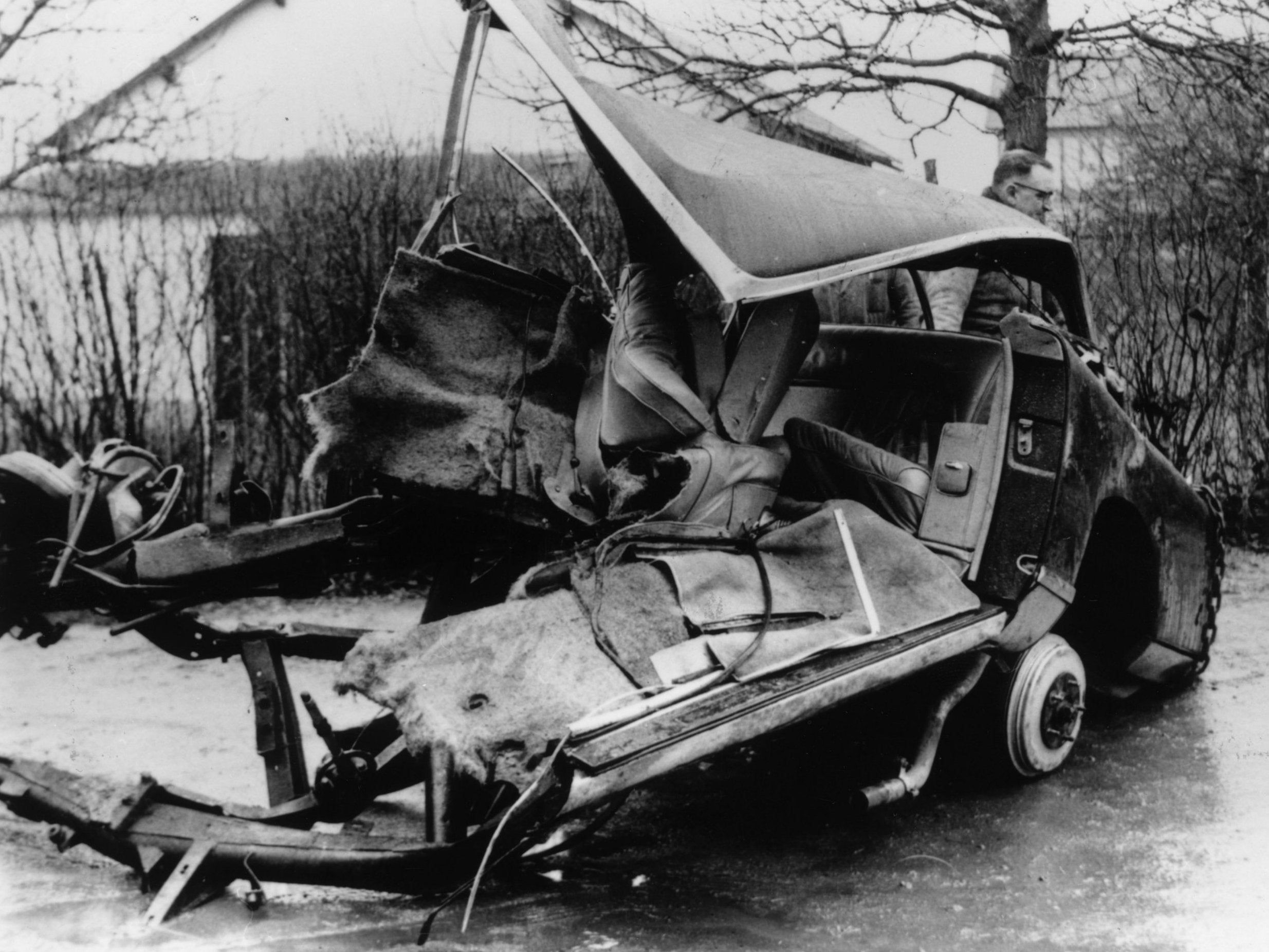
The unfinished manuscript of The First Man, with its vision of the boy Jacques making a kingdom of football, was found in the boot of the crashed car. A year earlier, Camus had told a friend that he had written only a third of his complete works, that he felt he was just getting going. Previously, he had said to friends that, as the epitome of random cruelty, nothing could be more absurd than dying in a car crash. After his death, he was buried up in the hills of Lourmarin. At his funeral, the local players carried his coffin.
In The Football Man (1968), Arthur Hopcraft wrote that football “has conflict and beauty, and when those two qualities are present together in something offered for public appraisal they represent much of what I understand to be art”. Art constitutes Homo sapiens’ oldest way of pulling meaning and transcendence out of the void, and in football Camus perceived an art form. To him, the game was of a piece with theatre; a drama of physical action that replaced the trappings of reason with the reality of the embodied. There is no final consolation forthcoming, Camus declared; there is no escaping our absurd predicament. This life, this right-now, is all we have. And so pour yourself out. The raw teachings of the physical, an unabashed love of irrational play, the echoes of the innocent pathos of youth; small moments of transcending our material prison. This was Camus’ beautiful game.
“If I were to die, in the midst of cold mountains, unknown to the world, cast off by my own people, my strength at last exhausted, the sea would at the final moment flood into my cell, come to raise me above myself and help me die without hatred.” One of Camus’ other great loves was swimming, especially in the ocean. During the six years I spent living in Vancouver – the last period of my life, I suspect, during which I will play football in any serious way – at the height of summer, I would play on a roasting Saturday morning until my legs were sour with trembling and my face was crusted with sweat. Then I would cycle back over to the beach by where I lived and wade out into the Pacific. The water shockingly cold, I would keep wading and then I would dive, feel the grime wash off me and feel the salt of my pores mix with the salt of the deep and feel my muscles began to pulse with a prickly numbness. I would surface and breathe. The sun would be blinding off the water. I would fill my lungs and float. On good days I would have done something special on the ball, and I would still be able to feel it lingering in my body like a memory, movement’s ghost on the outside of my foot, the hollow of my chest, the flat of my thigh. On bad days, I would focus on the floating, and try to let the self-recriminations wilt. Later that afternoon, I would head downtown to watch the Vancouver Whitecaps, to watch men do it better than me. Those were perfect hours. All of it shaking a rueful, happy fist at the empty sky. Just a game. Paradises lost and found. Just a game.

With thanks to Andy Martin and Robert Zaretsky
Click here to subscribe to The Blizzard, from £20 per year. Subscribers get unlimited access to The Blizzard’s back catalogue of more than 600 articles.
Join our commenting forum
Join thought-provoking conversations, follow other Independent readers and see their replies
0Comments